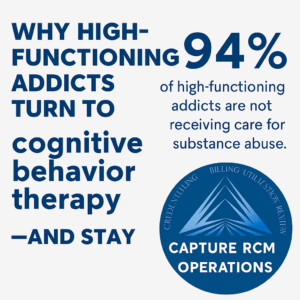
You’re still going to work. Still paying bills. Still making it to every school drop-off, every Zoom call, every “How are you?” with a rehearsed smile.
But deep down, you’re unraveling.
Maybe it’s the late-night drinking you’ve convinced yourself is “just stress.” Maybe it’s the pills you keep in your desk drawer “just in case.” Or maybe it’s the growing sense that none of it feels like enough anymore—not the success, not the control, not even the substance.
If you’re carrying addiction quietly and competently, you’re not alone. And you’re not weak for wanting help. At COR Behavioral Health in Hobe Sound, we see high-functioning people every day who are finally ready to stop pretending—and start living.
You’re Not Failing. You’re Just Tired of Holding It All Together.
High-functioning addicts don’t crash into treatment. They edge toward it, usually after months (or years) of keeping things just barely stitched together. They come in saying things like:
- “I’m not out of control, but I feel like I’m about to be.”
- “I’m exhausted, and I can’t tell anyone why.”
- “If I slow down, it all falls apart.”
What they’re describing isn’t weakness. It’s burnout. Not just from the substance, but from the pressure to keep the secret alive. And that’s exactly where cognitive behavior therapy (CBT) comes in.
What Is Cognitive Behavior Therapy—and Why Does It Help So Fast?
CBT is built on a simple, powerful truth: your thoughts shape your reality. If your mind is constantly looping with guilt, fear, or performance anxiety, your behavior will follow.
CBT helps you:
- Identify the self-sabotaging thoughts hiding beneath the surface.
- Interrupt the patterns that lead to overuse, isolation, or panic.
- Replace distorted thinking with more balanced, accurate beliefs.
It doesn’t ask you to “get over it.” It helps you understand what “it” actually is.
If you’re telling yourself, “If I stop drinking, I’ll lose my edge,” CBT invites you to ask: Is that true—or just something I believe because I’m scared?
“I Thought I Was Too Put Together for Therapy”
This is the lie that keeps high-functioning addicts stuck. You’re not sleeping on park benches. You’re not getting DUIs. You still show up—so how bad can it really be?
But high-functioning addiction isn’t about how bad your life looks. It’s about how bad it feels when no one’s looking.
- Waking up tired because the wine didn’t help you sleep.
- Feeling anxious when the pills wear off.
- Obsessing over keeping it together because you’re terrified of what happens if you don’t.
CBT doesn’t treat you like a failure. It treats you like someone who’s tired of living behind glass.
What Happens in CBT for High-Functioning Clients?
We tailor every therapy plan at COR to the actual person walking through the door—not just the label.
For high-functioning clients, CBT often focuses on:
- Cognitive distortions like all-or-nothing thinking (“If I slip once, it’s all over”)
- Performance-driven self-worth (“If I’m not succeeding, I’m nothing”)
- Avoidance cycles (“I’ll deal with it later, after this next project… or drink”)
Sessions are honest, structured, and grounded. No buzzwords. No pity. Just space to say what you haven’t said out loud—and tools to help you move differently after you leave.

Why CBT Works When Willpower Doesn’t
You’ve probably tried to cut back. Maybe you’ve promised yourself “only on weekends” or “just one more time.” But the truth is, willpower alone doesn’t undo patterns that have been protecting you for years.
CBT doesn’t rely on brute force. It teaches your brain new ways to respond—so the “urge” isn’t running the show. One client put it best:
“I used to feel like a fraud with a strong work ethic. CBT made me feel like a human with permission to rest.”
You Don’t Have to Let It All Fall Apart Before You Get Help
At COR Behavioral Health, we don’t wait for rock bottom. In fact, we challenge the whole idea of it. You don’t need to lose your job, your marriage, or your health to qualify for care.
We believe in early pivots. In people who still show up, even when they’re secretly struggling. In second chances that start before everything crashes.
In Hobe Sound and the surrounding communities, we’ve helped executives, parents, creatives, and caretakers who looked “fine” on the outside—but who were slowly drowning underneath.
You don’t have to keep pretending. You just have to show up once and say, “I think I need help.”
CBT at COR: Local Care That Gets It
We’re not a generic program. We’re rooted in Hobe Sound. That means we understand the pressure of small towns, public image, and the fear of being found out.
We offer:
- Flexible scheduling for professionals and parents
- Confidential support from licensed therapists
- Programs that integrate CBT with other evidence-based therapies
- The kind of care that respects your intelligence and protects your privacy
Most of all, we offer honesty. The kind you may not have felt in a long time.
Frequently Asked Questions
What if I don’t think I’m “bad enough” for therapy?
You don’t have to hit a crisis to deserve support. If you’re using substances to cope, numb, or maintain control, CBT can help you understand why—and what healthier tools could actually work better.
How does CBT help with addiction specifically?
CBT targets the mental loops that keep you stuck. If you use to escape anxiety, stress, or guilt, CBT helps you recognize those triggers early, challenge the thoughts fueling them, and replace them with healthier responses.
Will I have to talk about everything in my past?
Only what’s helpful. CBT focuses on what’s happening now—your current thoughts, beliefs, and behaviors. If exploring the past becomes useful, your therapist will guide you gently and only if you’re ready.
Is CBT covered by insurance?
Yes. Most insurance plans cover CBT when it’s part of a treatment plan. Our team at COR Behavioral Health can walk you through your benefits and help you understand your options.
Can I keep working while in treatment?
Absolutely. Many of our high-functioning clients continue working during therapy. We offer scheduling options designed to fit real lives—including early morning, evening, and telehealth appointments.
Ready to Drop the Mask?
You don’t have to fall apart to ask for help. You just have to be tired of pretending everything’s fine.
Call (888) 231-7973 or visit to learn more about our cognitive behavior therapy services in Hobe Sound, Florida. It’s confidential. It’s judgment-free. And it could be the most honest thing you do this year.



